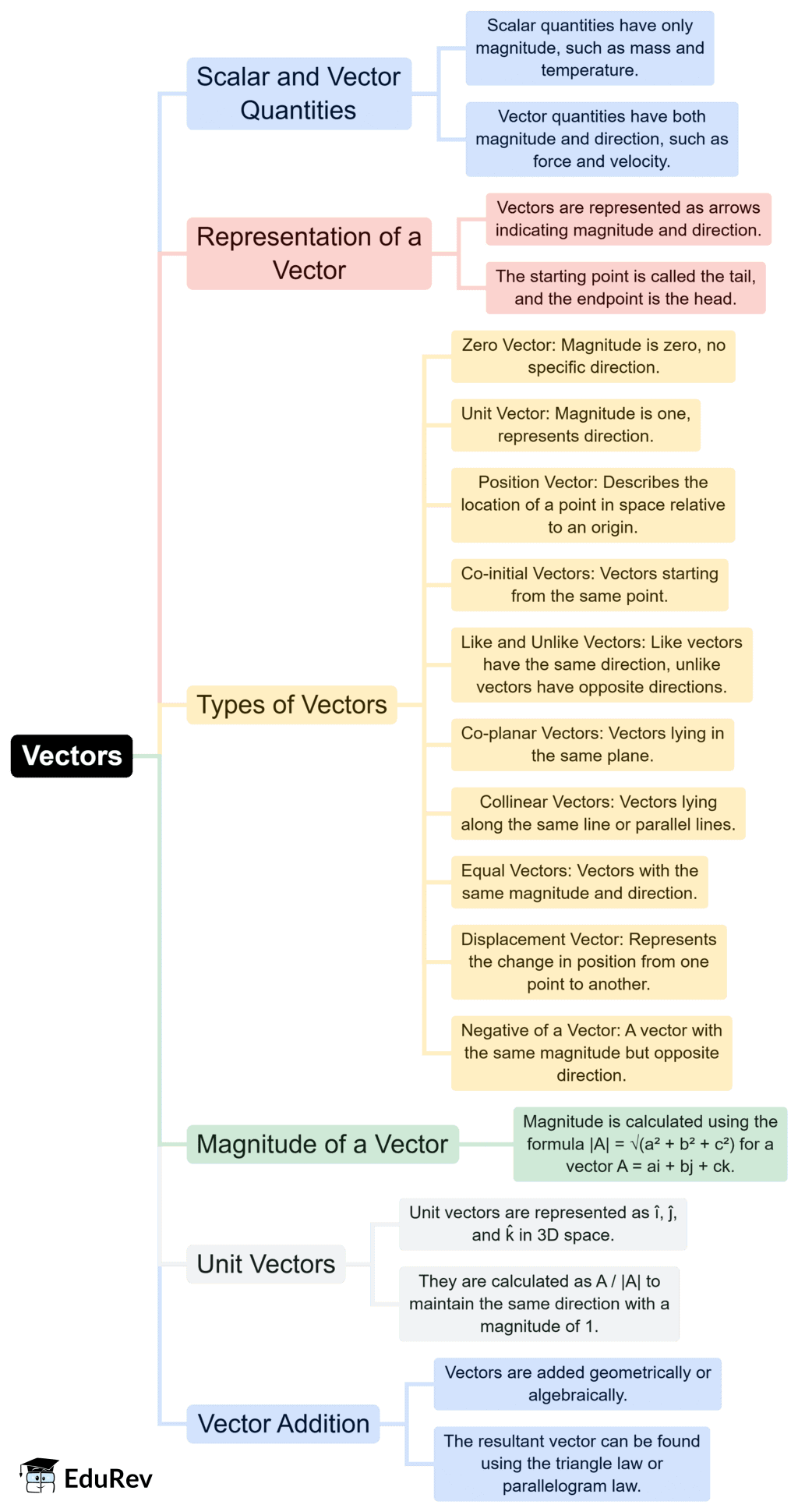JEE Exam > JEE Notes > Physics for JEE Main & Advanced > Mind Map: Vectors
Mind Map: Vectors | Physics for JEE Main & Advanced PDF Download

The document Mind Map: Vectors | Physics for JEE Main & Advanced is a part of the JEE Course Physics for JEE Main & Advanced.
All you need of JEE at this link: JEE
|
268 videos|780 docs|209 tests
|
FAQs on Mind Map: Vectors - Physics for JEE Main & Advanced
| 1. What are vectors and how are they defined in physics and mathematics? |  |
Ans. Vectors are quantities that have both magnitude and direction. In physics, they are used to represent forces, velocities, and other directional quantities. Mathematically, a vector can be defined as an ordered pair of numbers in two dimensions or an ordered triplet in three dimensions, often represented as arrows in a coordinate system.
| 2. How do you perform vector addition and subtraction? |  |
Ans. Vector addition is performed by placing the tail of one vector at the head of another and drawing a new vector from the tail of the first to the head of the last. For subtraction, you can add the negative of the vector you want to subtract. This involves flipping the direction of the vector to be subtracted and then following the same addition process.
| 3. What is the significance of the dot product and cross product of vectors? |  |
Ans. The dot product of two vectors measures the extent to which they point in the same direction and is calculated as the product of their magnitudes and the cosine of the angle between them. It is useful in determining the angle between vectors and in work calculations. The cross product, on the other hand, results in a vector that is perpendicular to the plane formed by the two original vectors and is significant in rotational dynamics and torque calculations.
| 4. What are the applications of vectors in JEE physics problems? |  |
Ans. Vectors are crucial in solving various physics problems in JEE, such as those involving projectile motion, forces, and equilibrium. They help in analyzing the motion of objects in different directions, resolving forces into components, and applying Newton’s laws effectively.
| 5. How can one effectively study vectors for the JEE exam? |  |
Ans. To effectively study vectors for the JEE exam, students should practice solving a variety of problems, understand the geometric interpretations of vectors, and familiarize themselves with vector operations such as addition, subtraction, dot product, and cross product. Utilizing visual aids like diagrams and graphical representations also enhances comprehension.
Related Searches





















